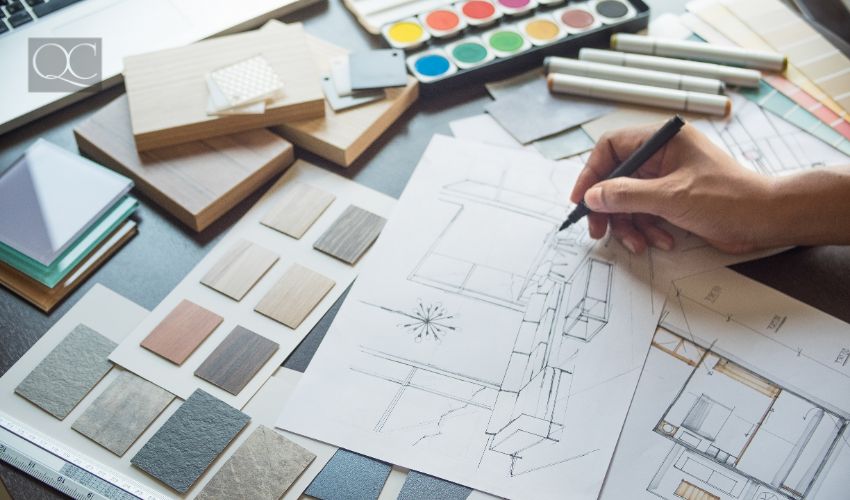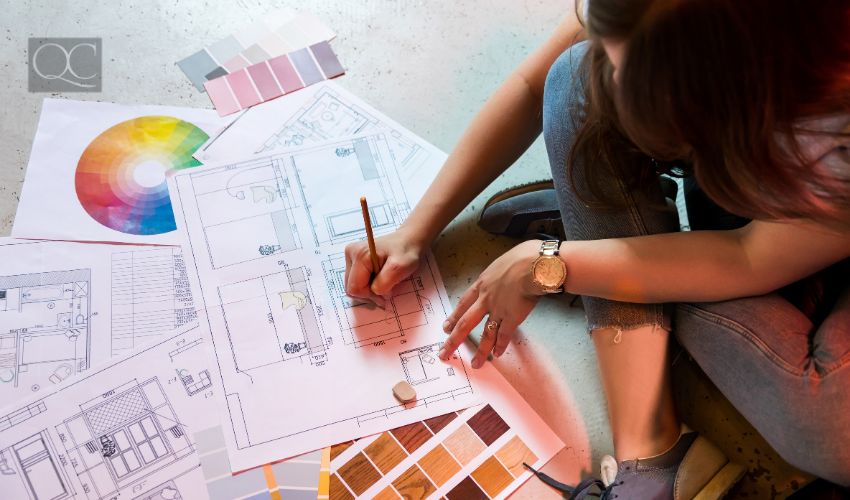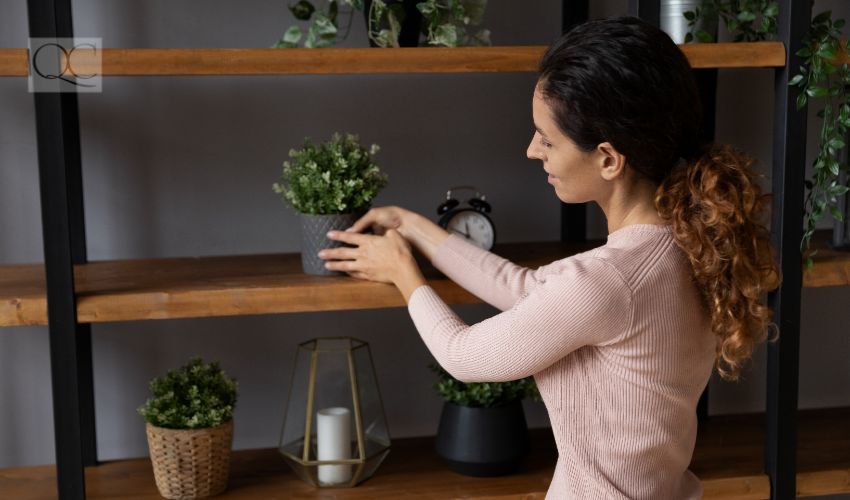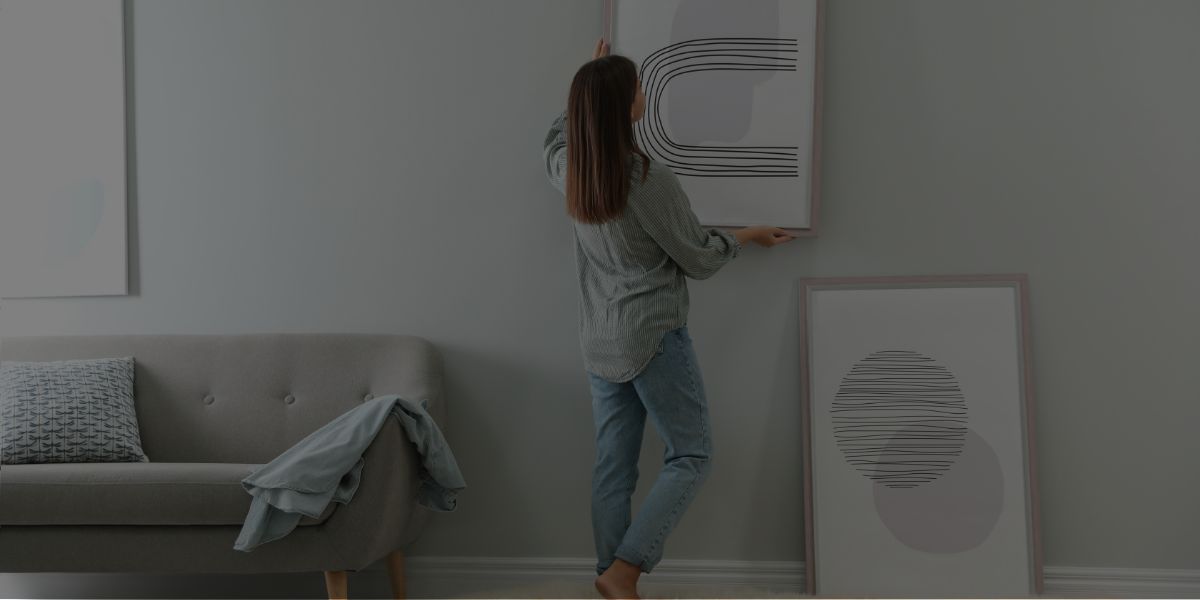Do you want to know how to become an interior decorator? You’ve come to the right place!
Chances are, you have a lot of questions about this new possible career path. Luckily, we’ve answered ALL of them in the article below.
So, sit back and put your feet up. By the time you’ve finished reading, you’ll know everything you need to get started ASAP!
Is Interior Decorating a Good Career?
That depends… Do you consider the chance to put your eye for design to good use on a daily basis a “good career”? How about making a lucrative income while playing a fundamental role in your clients’ homes? Do you thrive best when you’re able to tap into your creativity?
If you answered “yes” to any of these questions, guess what? You should definitely start a career as an interior decorator – and you’re going to absolutely LOVE it!
Do You Need a Degree to Be an Interior Decorator?
Technically, no, you don’t actually need a degree to get started as an interior decorator. But that doesn’t mean that getting properly educated and certified isn’t still the smartest possible option!
The fact is, prospective clients will always prefer to hire an industry expert who’s actually put in the time and effort to earn their stripes. After all, our homes are sacred. Why risk paying someone who can’t prove that they know what they’re doing? By having a reputable education and designation under your belt, it’ll be a lot easier for you to establish trust and credibility with potential clients.
Moreover, proper training will increase your chances of long-term success, arm you with a solid skill-set, provide you with ample business knowledge, and so much more!
Pro Tip: Make sure that the school you train with is properly accredited. Furthermore, they should always be recognized by reputable design institutions. QC Design School, for example, holds an A+ ranking with the Better Business Bureau. Plus, all of our courses/certifications are internationally-recognized!

How Long Does it Take to Become an Interior Decorator?
The amount of time it’ll take you to become an interior decorator depends on a few key factors:
- Whether you choose to train online or in-person
- Your level of drive, focus, and self-discipline
- The timeframe you’ve set yourself for achieving your goals
In-Person Training
On average, brick and mortar interior decorating courses can take anywhere from 6 months to 2 years to finish. The obvious pro of in-person schooling is that you’ll be surrounded by your fellow peers, as well as your instructor.
However, there are also some cons to consider. For instance, you’ll have to pay a much higher tuition rate for a much less personalized learning environment.
Moreover, you’ll have no choice but to work at everyone else’s pace. If the course is 4 semesters long, you won’t be able to graduate any sooner than that. Not to mention, you’ll be expected to abide by the strict schedule the school lays out for you. This means never having the flexibility to miss a class!
Online Training
Distance learning, on the other hand, has become the preferred method of education over recent years – and especially over the course of the COVID-19 pandemic. Why?
First, your tuition will be a lot more affordable, since there’s no physical campus or building to maintain. Second, since it’s just you and your tutor, you’re guaranteed a customized learning experienced, tailored specifically for YOU and your needs.
Additionally, the right online interior decorating course – such as the program offered by QC Design School – will be 100% self-paced. Essentially, this means that you’ll never have to commit to deadlines or the need to travel. That’s right, you can become an interior decorator while you sit on the couch in your jammies!
For example, QC’s Interior Decorating certification course gives you 2 full years to finish your training. The best part? During those 2 years, you have complete and total freedom to work through your studies whenever your schedule allows it!
Fun Fact: Many of our graduates found that by devoting a mere 1-2 hours per WEEK on their Interior Decorating Course, they were able to finish and earn their International Design and Decorating Professional (IDDP) certification in as little as 3-6 months!

What Does an Interior Decorator Do on a Daily Basis?
For an interior decorator, the primary focus of your job are the aesthetics of your clients’ living spaces. If you’re ultra passionate about color section, furniture placement, decor and accessories, and bringing balance to a room, then you’re positively going to thrive in this profession!
However, to work as an interior decorator involves a lot more than simply walking into a home and making it pretty. On the contrary, you’ll have more than your fair share of daily responsibilities – many of which, you’ve probably never even thought of!
Here are just some of the regular tasks you’ll need to take care of for any given project:
- Conducting consultations and follow-up meetings with clients
- Determining the scope of each project
- Developing a design plan that typically includes floorplans, color palettes/selections, furniture placement, decor and accessories, etc.
- Writing airtight contracts for your interior decorating services
- Consulting your client on their budget (and helping them stay within it)
- Collaborating with/working alongside contractors and other industry experts
- Shopping for furniture, window treatments, accessories and decor, and (if applicable) paints and wallpapers
- Putting together a timeline for each project and then ensuring the timelines are followed
So, now that you better understanding the role of an interior decorator, how do you actually become one? Below are 6 steps to walk you through the process!
Step One: Research the Home Design Industry
While we’re on the topic of research, now is also a great time to check out your local competition! Who are the other interior decorators in your area? What are their businesses like? How much do they charge for their services? How would you define their brand?
What are people nearby looking for, in terms of interior decorating services? Is the demand high where you live? If not, in which ways can you adjust accordingly to appeal to a larger range of clientele and ensure that your career endeavors are a success?
If you want to know how to work as an interior decorator, you’ll first need to know what the demand is like for this field in your local area. So, do some heavy duty research! Test out some relevant SEO keywords and inquiries in Google, and see what pops up.
There’s no pressure for you to start your own business at this stage. But there’s absolutely no harm in brainstorming ideas – and one of the best ways to brainstorm is to first understand what your competitors are currently doing!

Step Two: Take Courses on How to Become an Interior Decorator
Now it’s time to get properly trained, educated, and certified as an interior decorator. Start by deciding whether you’d prefer to pursue your schooling online or in-person. Once you’ve determined that, you can then conduct the necessary research to figure out the different options that are at your disposal.
(Insider tip: If you do your training online, there will be a LOT more interior decorating courses to choose from!)
Regardless of whether a program is online or in-person, it’ll need to meet the same criteria. In order to ensure that you get your money’s worth – and the highest-quality education – we strongly urge you to only consider interior decorating courses that:
- Are offered by legitimate, reputable design schools – a.k.a. schools with proper accreditation.
- Come from an institution that has a comprehensive website, a strong social media presence, and an active Student Support Team.
- Offer a full course curriculum breakdown on their business website.
- Are tutored by a real industry expert with in-field experience.
- Offer thorough, hands-on experience.
- Provide flexibility and convenience that best suits your preferred learning style.
- Fit your desired budget.
- Come with high-quality, extensive course materials as part of the course’s tuition.
- Provide an internationally-recognized certification upon completion.
Psst! Did we mention that QC Design School fits ALL of the above criteria? Join our free Virtual Classroom on Facebook today, and see what current and past students have to say about their experience with QC!
Step Three: Practice Those Decorating Skills
Although your professional training will teach you how to be an interior decorator and run your very own business, it’s practice that will truly make you perfect! So, we recommend getting as much of that as possible – especially before you jump head-first into booking paying clients.
After all, paying clients will expect nothing short of the very best from you. In order to achieve those desired results, you’ll want to have some experience under your belt first.
Why not start by offering complimentary interior decorating services to your closest friends and family? You can also use your own home to try out different techniques and styles you’ve mastered during your schooling. Another possible option is to take part in a stylized photoshoot, or lend your expertise to some sort of charitable cause.
Keep in mind, you likely won’t be getting paid for the above services. However, the knowledge and skills you’ll acquire will more than make up for any amount of money you would’ve made. Trust me when I tell you: in the world of interior decorating, hands-on experience is just as valuable as money – especially in the beginning of your career!

Step Four: Build Your Design Portfolio
In this type of industry, visual aids are everything. In fact, your portfolio will probably be the very thing that, more often than not, creates a strong and favorable first impression for your business.
Here’s why step three is so important: by getting all sorts of practice under your belt, you’ll be perfectly set up to crush step number four!
And why is step four so important? Because if you want to become an interior decorator, you’re going to need a strong, high-quality design portfolio.
When prospective clients are thinking of working with an interior decorator, they’ll likely turn to Google. As they conduct their search, they’ll come across your website and check it out. If they’re able to clearly find and view your design portfolio, and all of your photos are impressive and of the highest quality, there’s a great chance they’ll reach out to you to book a consultation!
If your portfolio is inadequate (or, worse, nonexistent) you could wind up turning away potential customers before you’ve even had a chance to speak with them. And of course no aspiring interior decorator wants that!
Want to learn everything you need to know about developing the ultimate interior decorating portfolio? Check out QC Design School’s Accelerate Your Business Workshop today!
Step Five: Network with Other Interior Designers and Decorators
Networking will be your BEST FRIEND as you become an interior decorator and advance in your career. The home design industry is a pretty tight-knit community. It won’t take long for you to meet and/or become acquainted with the other decorators in your local area, as well as contractors, suppliers, and other types of designers.
“But wait,” you might be thinking, “why do I need to become friends with other interior decorators? Aren’t they my competition?”
Yes, but in no way does this mean they aren’t also allies. Your career will be much better off if you establish positive connections with others in the community (even your competitors) than if you tried to go at things completely solo.
After all, by networking, you’ll be increasing your chances of getting referrals. Those in the industry who are not also interior decorators can collaborate with you on projects or send potential clients your way. Heck, even other decorators can do this for you (so long as they know you’d do the same if ever given the opportunity). Proper networking cultivates a mutually respectful agreement of “you scratch my back, I’ll scratch yours”.
In the end, you’ll have a longer, more fruitful career if you network with other designers and decorators.

Step Six: Stay Up-to-Date with Interior Decorating Industry Trends
This is the step that most aspiring interior decorators tend to forget about – and this is ultimately why they’re unsuccessful in the long run. In order to start a career as an interior decorator, you have to get properly trained and really learn your stuff.
And the truth is, taking one or two courses at the beginning of your career won’t be enough.
In reality, the learning process will be a lifelong effort. After all, the home design industry is constantly changing and evolving. As a result, there will forever be new trends to try, new knowledge to acquire, and new skills to harness.
To limit your training is to limit your career’s potential. Staying in one place will make you (and your subject-matter expertise) stagnant… and believe me, clients will notice this.
So, be proactive about expanding your education! Take more courses and add even more certifications to your already-impressive resume. Browse social media during your downtime, read interior decorating publications, and research the newest trends as they come.
The more current you keep your skill-set, the longer you’ll be able to make your mark on the interior decorating world!
What Other Career Paths Can You Take as an Interior Decorator?
The beauty about interior decorating is that it perfectly complements every other area of home design. In addition to running your very own decorating business, you can also pair your skills with any of these other specializations and take your career to the next level:
Home Staging
The real estate market is red hot right now, and will likely remain that way for years to come. Thus, now is the optimal time to offer staging services to clients – which can be complimented effortlessly and elevated by your interior decorating know-how!
Check out QC Design School’s Home Staging and Staging for Designers courses, and earn your International Staging and Redesign Professional (ISRP) certification in as little as 3 months!
Professional Organizing
Once you’ve helped a client declutter their home and re-organize their spaces, why not take things one step further by decorating those spaces in the most aesthetically-pleasing way possible? Professional organizing is all about efficiency and practicality, but visual appeal plays a big role, too. If your business offers both professional organizing AND interior decorating services all under one roof, think of all the clients you’ll book!
Check out QC’s Professional Organizing Course and our globally-recognized Advanced International Organizing Professional (AIOP) certification and get started today!

Color Consulting
Some people mistakenly believe that color consultants only help clients pick paint colors. But in reality, their jobs involve a lot more than that! Part of their job can also be to help clients pick out the right colors for furniture, decor, and accessories. Since, as an interior decorator, you’ll be a master of all these things, why not also be your clients’ leading color expert, too?
The best part?
QC Design School’s Color Consultant Course can get you trained and certified as an International Color Consulting Professional (ICCP) in just a few short months. So, enroll in this program today to refine your skill-set, boost your bookings, and better your business’s bottom line!
Feng Shui Design
Feng Shui has been wildly popular for as long as we can remember. One thing’s for certain: it’s definitely not going anywhere! In fact, it’ll only continue to get even more popular in the years to come.
And you’ve guessed it: it also pairs seamlessly with interior decorating!
This is because both Feng Shui and interior decorating ultimately share the same goal: to create cozy, beautiful spaces. It’s no surprise that a lot of successful Feng Shui designers also offer interior decorating services as part of their business.
Want to learn more? Read all about QC’s Feng Shui Design Course and Advanced Feng Shui Design Professional (AFDP) certification here!
Floral Design
Florals have always been – and always will be – one of the best decor elements a home can have. So, our honest question is: why outsource such an in-demand service when you can offer it to clients yourself? With the right training, you’ll be equipped to design all of your customers’ floral arrangements and then place them throughout the home accordingly.
Read more about how QC Design School’s Floral Design Course can earn you your International Floral Design Professional (IFDP)!
Virtual Design
Thanks to the pandemic, people everywhere discovered that a lot of home design services can, in fact, be offered online instead of in-person. What does this mean for you? Firstly, you’ll be able to offer your interior decorating services to local clients who might not necessarily be able to make in-person meetings. Secondly, you’ll also be able to service long-distance clients from all around the world, too!
Brand-new to e-design and not sure where to start?
QC’s Virtual Design Training mini course will teach you everything you know to transfer your business online with ease and success!



Amazing article with so much info on the path to getting certified and what you can expect from a career as an Interior Decorator!
This is fantastic!! Everything you need to know is right here!
Yay, that makes us so happy to hear, Daniella! <3 The way we see it is, there are tons of guides out there on how to become an interior decorator, but many of them don't touch on ALL frequently asked questions - so, that's what we're trying to do! That way, aspiring decorators will know everything they need in order to get their career started right away. Thanks so much for reading! <3
All the best,
The QC Team
This article is filled with essential information and pro tips about a career in interior decorating! It really is an ultimate guide!
We’re so glad you think so, Alexa, thanks so much for commenting! <3 We know that people have a LOT of questions when it comes to how to become an interior decorator, so we hope that this guide is able to successfully answer them all. <3
All the best,
The QC Team
I’m enrolled in the online classes but not being really computer savvy has stifled me a bit, I get frustrated when I’m trying to do an assignment then it won’t upload or I have to convert it to another form jpeg-pdf or doc, acrobat. Since I’m older it really takes me time but I love decorating and everyone loves my work because I think out of the box and have really cool and WOW factor designs.
How much does the course cost and can you apply for a federal grant
Good morning! I am intrested of the price of the school , thank you
Hi I’m Rossana and I just wondering what level in English do I need to start the Interior decoration course?
Hi I’m interested in becoming a certified decorator.
I would like to more information .
Pretty! This was an extremely wonderful post. Thanks for supplying this info.
Like to hear much more
Could this be emailed to me? Thank you!
Interested
I’m interested in learning more about your program.
Hi, I would like a course catalog. Thanks